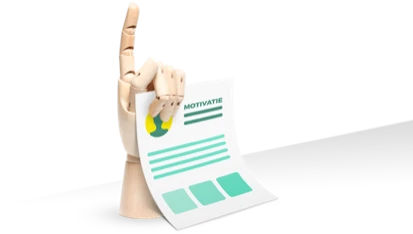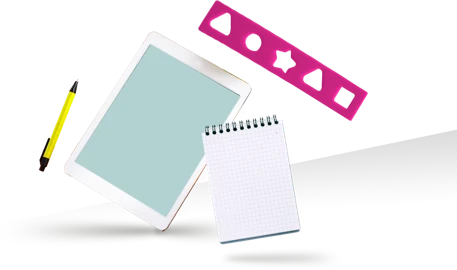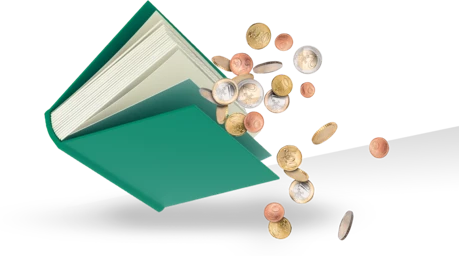Wo master - Kunst en Cultuur
Kunst- & cultuurwetenschappen
Deze opleiding heet ook wel:
Kunst- en cultuurwetenschappen
Varianten:
Arts in Society, Film and Contemporary Audiovisual Media, Popular Music and Sonic Cultures, History of Architecture and Urbanism, Conservatoren-opleid...

Over de opleiding Open dag: 13 maart

What do art forms like painting, film, music or theatre contribute to societies? Why have humans in every culture and throughout history engaged in activities we categorize as art?
The Master programme Arts and Culture provides you with the skills needed to investigate the function of the arts in society. It combines in-depth knowledge in a range of specific disciplines with professional and social engagement as well as critical and creative thinking.
The programme's six tracks are devised to reflect the multifaceted forms of the art-world and the cultural sector – from the fine arts and architecture to music, theatre and film. The track of your choice prepares you for a professional position in the art-world and the cultural sector in your area of expertise.
You can choose from the following six tracks:
* Art History (with specialization Curatorial Studies)
* Arts in Society
* Film and Contemporary Audiovisual Media
* History of Architecture and Urbanism
* Landschapsgeschiedenis (in Dutch)
* Popular Music and Sonic Cultures
Keuzes binnen de opleiding
-
The arts are considered to have a wide variety of 'functions' in society. Not only can they be a means for expressing, representing and even generating individual and collective identities, but they also serve to critical reflect society. In the Master track Arts in Society you will study aspects of the public role of art in today's societies.
In the present time, the position of the arts and culture in society is more critical than ever. We witness how culture has become a platform for polarization and conflict, but how it can also serve as an instrument for appeasement. From the realist novel and Brecht's theatre to Pussy Riot and NWA, art has been used as a stage to combat political oppression and to express and negotiate identities. This track looks at the various ways in which artistic practices can contribute to forms of political resistance. The track also foregrounds approaches which illuminate the inter-relations between various arts disciplines. Finally, the MA track studies arts and culture in relation to current developments such as digitization / AI, decolonization, democracy and populism, globalization and its relation to future developments in GenZ.
Building on a combination of critical sociology and cultural studies, the Arts in Society track provides tools, in the first semester, to study and interpret these developments whilst developing strategies for
Kennismaken met deze variant?
-
From the canonical to the cutting-edge, the profound to the playful: the current film world is as diverse and critically engaging as ever. So is our Film and Contemporary Audiovisual Media MA track.
It equips you to join high-level conversations about timely and fascinating issues. There will always be a “next big thing” in the world of cinema, and we welcome our inspired students to discover it with us.In this one-year Master's track, you will work closely with our international faculty, whose collective expertise includes phenomenological and cognitive film theory, film aesthetics, digital film forensics, queer film studies, post-colonial studies, film festival research, screen acting studies, media anthropology, animation studies, documentary studies and more. Our graduates are ready to leave their mark on the next chapters of film history, both inside and outside of academia.Our track is unique in its combination of research-driven seminars, the rich research resources of the world's Top 100 universities, and the extensive networks of internship opportunities in major film and media institutions. The Master offers a relevant (inter)national internship network. This track will therefore be attractive to students who want to deepen their knowledge of film, swiftly transition into the professional world, and pursue a career in the arts and media sector.
Please visit ou
Kennismaken met deze variant?
-
The MA track Popular Music and Sonic Cultures examines music and audio cultures within global and local contexts. Unique in its kind, it combines attention for creative practice and music analysis with a wide array of methodological and theoretical approaches at a World Top 100 university.
Students are guided by an internationally recognized faculty of scholars whose specializations and research range from hip hop, R & B, and electronic dance music to jazz, music video, soundscape, video game, dance, and theatrical sound design. These scholars offer insight into the music industry, and the field of music criticism, and from a variety of perspectives which address the key approaches and challenges of our times. In the various courses and internships, students will develop highly relevant and transferable skills that prepare them for a professional future in the popular and contemporary music world.This programme focuses on cutting edge developments in popular music including the impact of new media upon modes of creativity, distribution, and reception. Through applying a range of theoretical approaches, the programme will offer students an in-depth understanding of how such processes affect musicians and the music industries in light of rapidly changing economic, political, and technological structures.
Students critically examine the organization, experience, and creati
Kennismaken met deze variant?
-
The Master's track History of Architecture and Urbanism explores the evolution of cities, villages, and landscape design in Europe within the continuously changing global environment.
Cities, neighbourhoods, buildings, parks, and cultural landscapes define the setting of our everyday life. No other human-made artifacts document the evolution of social relations, economic trends, technological innovations, philosophical views on humans and nature, politics, society, and culture more eloquently than architecture and urbanism. Our built heritage connects us to our past and helps us to position ourselves in the world around us. It helps us envision our future. Moreover, the impact of cities and buildings on health is self-evident – urban planners gave us our water management systems, and architects designed functional public housing and healthcare buildings. They are fascinating works of architecture that impact people's mental and physical health, happiness, and well-being.
This Master's track provides students with a rich and varied introduction to the history and theory of architecture and urban planning, cultural heritage, and healthy cities. It offers our students a progressive approach to architectural and urban history and theory, fit for our transforming times. Some of the courses we offer are affiliated with the Expertise Center Architecture, Urbanism and Health a
Kennismaken met deze variant?
-
Ben je geïnteresseerd in het beroep van conservator? En wil je concrete ervaring opdoen in dit vakgebied? Kies dan voor de Conservatorenopleiding.
Deze specialisatie biedt je de kans om niet alleen gedegen inzicht te krijgen in de museale wereld maar ook tijdelijk werkzaam te zijn in een belangrijk museum in Nederland of België.
De Conservatorenopleiding is een eenjarig programma, met de mogelijkheid op een aansluitende stage van een half jaar. Tijdens het masterjaar kun je een studiepad oude kunst of moderne en hedendaagse kunst volgen en leer je van alles over de achtergronden van musea en de werkzaamheden van conservatoren. Daarnaast krijg je de kans om na het masterjaar een betaalde stage van zes maanden te volgen bij een van de musea die participeren in de Conservatorenopleiding: Museum Catharijneconvent en het Centraal Museum in Utrecht, het Rijksmuseum in Amsterdam, Museum De Lakenhal in Leiden, het Groninger Museum, het Fries Museum in Leeuwarden en de Musea Brugge e.a.
Let op: de Conservatorenopleiding Kunstgeschiedenis is een specialisatie binnen de mastertrack Kunstgeschiedenis, MA Kunst- en Cultuurwetenschappen. Je meldt je dus aan voor de mastertrack Kunstgeschiedenis.
Kennismaken met deze variant?
-
De master Landschapsgeschiedenis is de enige mastertrack in Nederland die gericht is op verleden, heden en toekomst van het Nederlandse en Europese landschap.
Landschap speelt een centrale rol bij de oplossing van belangrijke vraagstukken. In de programma Landschapsgeschiedenis bestudeer je de ontstaanswijze, opbouw en betekenis van het landschap. De kennis die je opdoet, leer je actief inzetten op het gebied van ruimtelijke ordening, erfgoedzorg, landschapsbeleid, landschapsplanning en landschapsbeheer.Landschapsgeschiedenis hanteert een sterk interdisciplinaire aanpak, waarbij diverse benaderingen worden gecombineerd binnen de driehoek aarde, mens en natuur. Zo krijg je een praktische scholing in het analyseren van de opbouw en ontstaansgeschiedenis van het landschap met behulp van bronnen en methoden uit verschillende vakgebieden: Geografische Informatie Systemen (GIS); historisch-geografisch veldwerk; archiefonderzoek; oud schrift (Paleografie); veldbodemkunde; landschapsbelevingsonderzoek; historische kartografie; naamkunde (toponymie); oral history; pollenonderzoek (paleobotanie).De master biedt je mogelijkheden voor je individuele ontwikkeling en samenwerking met je medestudenten. Naast verplichte vakken over het Nederlandse en Europese landschap zijn er ook een aantal keuzemodules waarin:* je wordt ingevoerd in de wereld van landgoederen en buitenplaatsen;* je in
Kennismaken met deze variant?
- + Meer
Op Studiekeuze123 kun je informatie vergelijken. Op de website van de onderwijsinstelling kun je verder lezen als de opleiding je aanspreekt.
Bekijk instellingswebsiteBekostiging: Overheid
Toelating & selectie € 2.694 wettelijk collegegeld in 2026 / 2027

Om toegelaten te worden tot een opleiding moet je aan bepaalde eisen voldoen.

Toelatingseisen
Om aan een master te kunnen starten, heb je een bachelordiploma nodig.
Sluit je bachelor niet direct aan op de master, of stroom je door van hbo naar wo? Dan moet je meestal een schakelprogramma of premaster volgen. Lees meer over schakelprogramma’s (Schakelprogramma, is dat nodig? - Studiekeuze123)
Collegegelden
Wettelijk collegegeld
Wettelijk collegegeld
Wettelijk of instellingscollegegeld?
Heb je recht op het wettelijk collegegeld of betaal je het instellingscollegegeld? Gebruik onze Collegegeldwijzer
Hoe hoog is het instellingscollegegeld? Bekijk het op de website van de universiteit
Meer weten?
Belangrijke data

Mis geen belangrijke gebeurtenissen. Check belangrijke data ook bij de opleiding zelf.

-
13
maart 2026
Open dag / avond
Meer open dagen -
15
augustus 2026
Aanmelddeadline opleiding -
1
september 2026
Start opleiding
Alle startmomenten
Tijdens de opleiding 104 eerstejaars

Geen enkele opleiding is hetzelfde. Kijk daarom naar de kenmerken van een opleiding.

Studeren bij deze instelling
Studieadvies
We hebben onvoldoende betrouwbare informatie over dit onderwerp.
Studieverloop
Diploma binnen 2 jaar
Meer weten?
Tevredenheid 4.0/5.0 algemene tevredenheid

Hoe beoordelen de (oud)studenten deze opleiding?

Nationale Studenten Enquête
Hoe tevreden waren studenten in 2025 over aspecten van deze opleiding?
|
Deze opleiding
Rijksuniversiteit Groningen |
Landelijk gemiddelde
Kunst- & Cultuurwetenschappen Vergelijk alle 9 opleidingen |
verschil | |
|---|---|---|---|
|
Studenttevredenheid
Meer informatie | 4.0 / 5 | 3.9 / 5 | |
| Sfeer | 4.3 / 5 | 4.4 / 5 | |
| Studiefaciliteiten | 3.9 / 5 | 3.9 / 5 | |
| Studie opnieuw kiezen | 4.0 / 5 | 3.8 / 5 | |
| Inhoud en opzet | 4.0 / 5 | 3.8 / 5 | |
| Aansluiting beroepspraktijk | 3.5 / 5 | 3.2 / 5 | |
|
Studenttevredenheid
Meer informatie | 4.0 / 5 | 3.9 / 5 | |
| Sfeer | 4.3 / 5 | 4.4 / 5 | |
| Studiefaciliteiten | 3.9 / 5 | 3.9 / 5 | |
| Studie opnieuw kiezen | 4.0 / 5 | 3.8 / 5 | |
| Inhoud en opzet | 4.0 / 5 | 3.8 / 5 | |
| Aansluiting beroepspraktijk | 3.5 / 5 | 3.2 / 5 | |
| Docenten | 4.2 / 5 | 4.2 / 5 | |
| Lesstof in het Engels | 4.6 / 5 | 4.6 / 5 | |
| Studiebegeleiding | 3.8 / 5 | 3.9 / 5 | |
| Toetsing en beoordeling | 3.9 / 5 | 3.8 / 5 | |
| Betrokkenheid en contact | 4.0 / 5 | 4.0 / 5 | |
| Studiedruk |
Oordeel afgestudeerden
Over de studie Kunst- & Cultuurwetenschappen
Studeren met een ondersteuningsbehoefte
Veel studenten hebben tijdens hun studie behoefte aan extra voorzieningen of flexibiliteit in het onderwijs. Dit kan komen door een aandoening zoals dyslexie, een chronische ziekte, psychische klachten, maar ook topsport of ondernemerschap tijdens de studie. Studenten beoordeelden hoe tevreden ze zijn over de ondersteuningsmogelijkheden bij hun onderwijsinstelling.
Na afstuderen 35% van de werkenden vond een baan op niveau

Lees hoe het studenten van deze opleiding in de eerste periode na hun studie vergaat op de arbeidsmarkt.

Meest gekozen beroepen (na deze studie)
| Professoren en andere onderwijsgevenden in het hoger onderwijs | 11% |
| Specialisten op het gebied van reclame en marketing | 8% |
| Specialisten op het gebied van beleidsadministratie | 7% |
| Archivarissen en conservatoren | 6% |
| Verkoopmedewerkers | 5% |
Werkgelegenheid na deze studie
Bij deze studie zijn de verwachtingen voor het vinden van een baan minder goed.
Een (substantiële) baan vinden...
duurt gemiddeld 15 maanden.30% krijgt een vast contract.
Match tussen studie en beroep
58% vond een baan binnen het vakgebied van de studie
35% vond een baan op het niveau van de studie
Startsalaris
Het startsalaris na deze studie is lager dan het gemiddelde van alle wo master studies.
€ 2.561
Geschatte startsalaris na deze studie
€ 3.150
Geschat van alle wo master studies
Gemiddelde werkweek
Hoeveel uur afgestudeerden gemiddeld werken bij hun huidige baan.
32 uur
Het percentage zelfstandigen
Het aandeel mensen dat werkt als zelfstandige of ondernemer.
11%
Contact Contact 050-3638100

Meer weten over de opleiding? Neem contact op met Rijksuniversiteit Groningen


Meer informatie
Bezoek ook de website van Rijksuniversiteit Groningen
Bezoek website van Rijksuniversiteit Groningen


